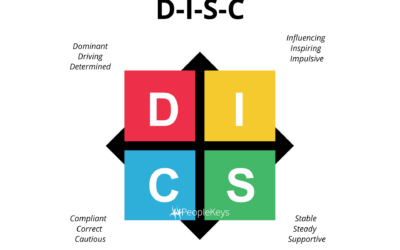With Valentine’s day approaching, I thought it would be timely to revisit Personality Types as they relate to relationships. The most common question I have received in all the years doing workshops and coaching on Personality Type and Emotional Intelligence in the corporate setting is not about work but about personal partners. Without fail, there is always someone in the workshop that will ask, “What is the best personality type for my personality type to be in a romantic relationship with?” My answer is always the same. It is less about the right fit and more about understanding how to make types fit right. Although there are some types that may fit more easily with others, the truth is any type fits with any other.
The trick is to fully understand your type and that of your partner’s. How do you/they function? How do you/they get mental energy? How do you/they process information and decisions? What information do you/they lean to and how do you/they take in information? How do you/they approach goals and organize time? What do you/they find valuable? What are their fears? What do they value? Once you have a full understanding, you can respectfully find common ground and navigate the relationship.
There are pros and cons to every combination. The strengths of your partner with an opposite personality type can help carry the load in areas that you struggle in. Be sure to appreciate and value your partner’s ability and willingness to do so. In addition, be sure to be willing to do the same for your partner in the areas that come easier to you due to your personality type. Seek to understand their perception of situations, remembering that their perception is greatly influenced by their personality type. As is yours. This most often reduces tension by increasing empathy. For example, someone that is a High I, may have a tendency to get hyperverbal when they are excited or under stress. Knowing this, their partner can take it as an emotional cue and respond accordingly, versus reacting to it negatively (using the DiSC Personality Style).
Although having the same personality type as your partner can make some things easier, such as having the same motivators and perceptions. There are traps to watch for when in a relationship with your same type. There is no one to fill in the gaps for each other. For example, (if using the MBTI Type as your tool) ENFPs are very playful and dread routines and tasks such as paying the bills or balancing the checkbook. So two ENFPs in partnership will have to decide how this task gets accomplished; taking turns, one is in charge and the other gets another “icky” task to be responsible for, etc. Remember, personality type characteristics are not excuses for not getting the job done or getting the job done well.
Be sure to read my blogs on each personality type.
Want to learn more about using the DiSC to become a better you?
Get my workbook Coach Yourself To Excellence.
More From Michele
The “D” Style DiSC Personality Type Assessment
Dominant - Driver - Determined(Takes on Active Roles & is Task Oriented) General Characteristics:Good problem solver, Risk-taker, Strong ego, Self-starter, Goal-oriented Strengths: Administrative Leadership Delegator Responds to Direct Confrontation Blind...
What The DiSC Personality Type Style Measures
, What the DISC Measures: D - Measures How a person Solves Problems & Responds to challengesI - Measures How a person Attempts to Influence or Persuade othersS - Measures How a person Responds To Rules and RegulationsC - Measures the Pace at which a person...
Why Personality Type training can be effective?
, Personality Type training can be effective for a variety of reasons: Leadership Development: Knowing your inherent strengths and limitations is a vital part of effective leadership. Through targeted training, learn how to recognize your instinctive leadership...







